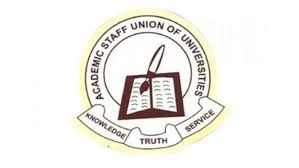The Academic Staff Union of Universities (ASUU) has warned of a possible industrial crisis in Nigeria’s public universities if the Federal and State Governments fail to urgently address unresolved labour issues.
In a statement signed by its president, Prof. Christopher Piwuna, ASUU cited poor welfare, inadequate funding, and the government’s failure to honour past agreements as key sources of frustration among lecturers.
The warning comes after Minister of Education, Dr. Tunji Alausa, assured that strikes would no longer occur in Nigeria’s tertiary institutions, hinging his optimism on dialogue and meeting union demands. While welcoming the sentiment, ASUU insisted that “action must follow words.”
“Many of our members teach on empty stomachs, conduct research without access to journals, books, chemicals, or reagents, and struggle to meet basic living costs,” the union said, adding that lecturers are unfairly blamed for producing “unemployable graduates” despite operating under dire conditions.
The union expressed dismay over the government’s failure to conclude the renegotiation of the 2009 FGN-ASUU Agreement, accusing officials of “tokenism” and selective implementation. It also condemned political interference in university administration, citing the controversy over the Acting Vice Chancellor of Alvan Ikoku University of Education.
ASUU rejected initiatives like the “Diaspora Bridge,” which it described as treating academics seeking better working conditions as mere “volunteers,” calling the approach hypocritical.
The union appealed to leaders and stakeholders to intervene, noting that successive governments have left it with “a long list of MoUs and MoAs” dating back to 2013, without tangible progress.
“No memorandum or discussion can replace a Collective Bargaining Agreement that addresses staff welfare and creates the environment for productive academic work,” ASUU said. “The time to act is now.”

